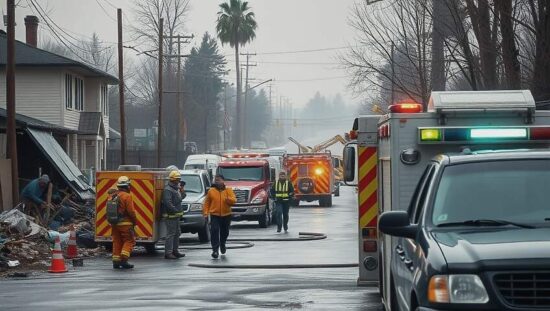Germany’s disaster preparedness is critically inadequate, according to a stark assessment released by the German Red Cross (DRK). Gerda Hasselfeldt, president of the DRK, voiced deep concerns in an interview with the “Augsburger Allgemeine” highlighting systemic vulnerabilities extending far beyond logistical infrastructure.
Hasselfeldt’s critique extends to the nation’s overall resilience, arguing that the population itself is insufficiently equipped to respond effectively to large-scale emergencies. While acknowledging the vital work of DRK’s dedicated volunteers, she emphasized the urgent need for broader, accessible training in basic first aid and caregiving skills. “We need to move beyond specialized personnel and empower the general public with essential knowledge” she stated.
A key proposal from the DRK centers on integrating mandatory, recurring first aid education into the school curriculum. Hasselfeldt specifically suggested a bi-annual two-hour session from the 7th grade onwards, focusing on techniques such as cardiopulmonary resuscitation (CPR). “This can save lives” she argued, pointing to the potential for irreversible damage stemming from a lack of immediate intervention during cardiac arrest. The DRK president noted that similar programs, implemented successfully across numerous countries, remain conspicuously absent from Germany’s educational framework.
Beyond formal education, Hasselfeldt urged citizens to proactively build resilience in their own homes, advocating for the accumulation of emergency supplies – including potable water, long-life food, hygiene products and essential medications – sufficient for a minimum of three days, ideally two weeks. She also pointed to relatively simple tools like hand-cranked lamps and radios as valuable additions to any preparedness kit and recommended first aid courses incorporating self-protection measures.
The DRK’s evaluation is likely to fuel a renewed debate over Germany’s allocation of resources towards civil protection, especially given the escalating geopolitical tensions and increasing frequency of extreme weather events linked to climate change. Critics will undoubtedly question whether current policies demonstrably prioritize the safety and preparedness of the civilian population, or if they remain overly reliant on existing volunteer networks and reactive measures. The call for greater public engagement and practical skills training highlights a fundamental shift required in how Germany approaches national security and emergency response.





